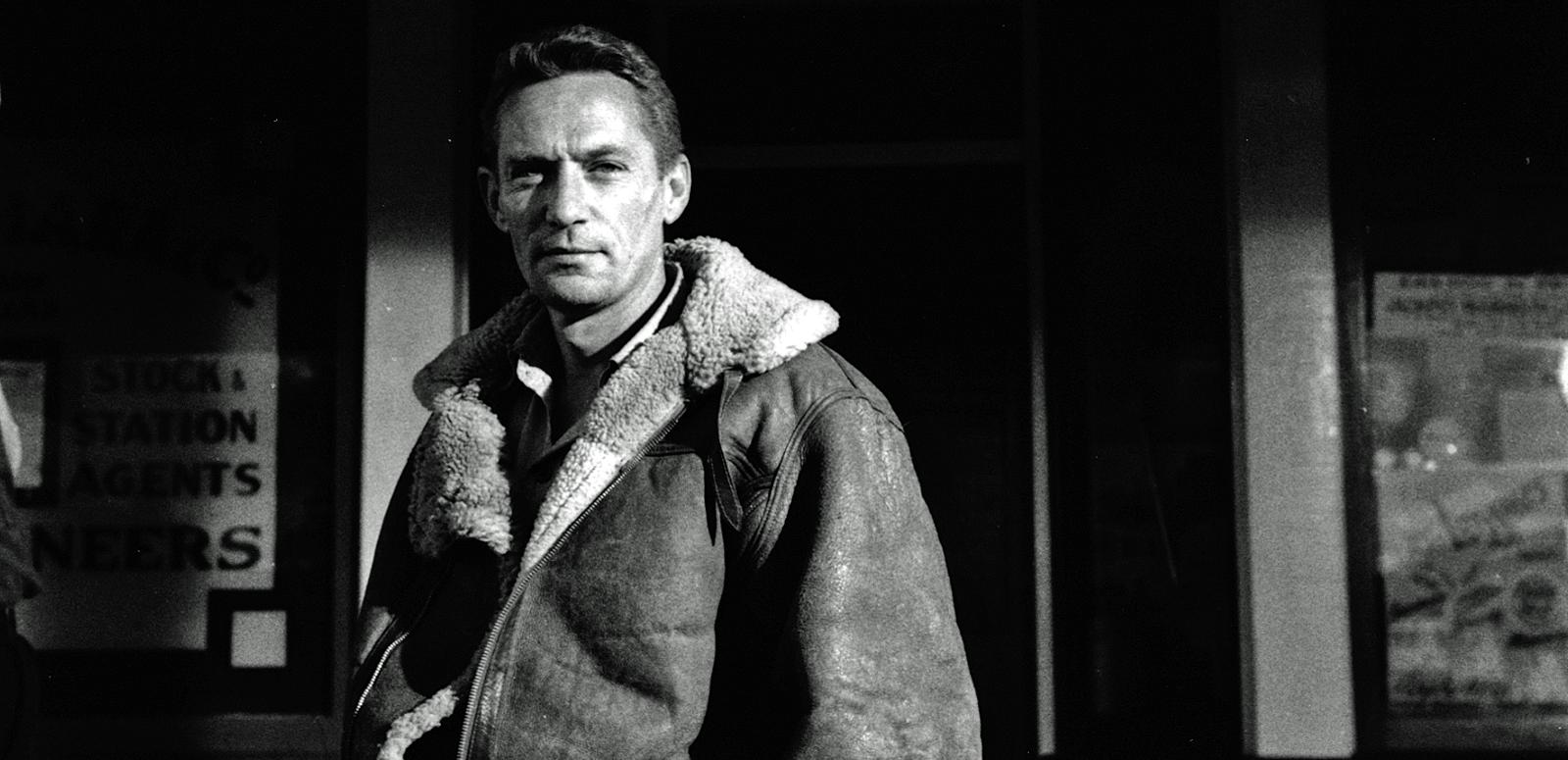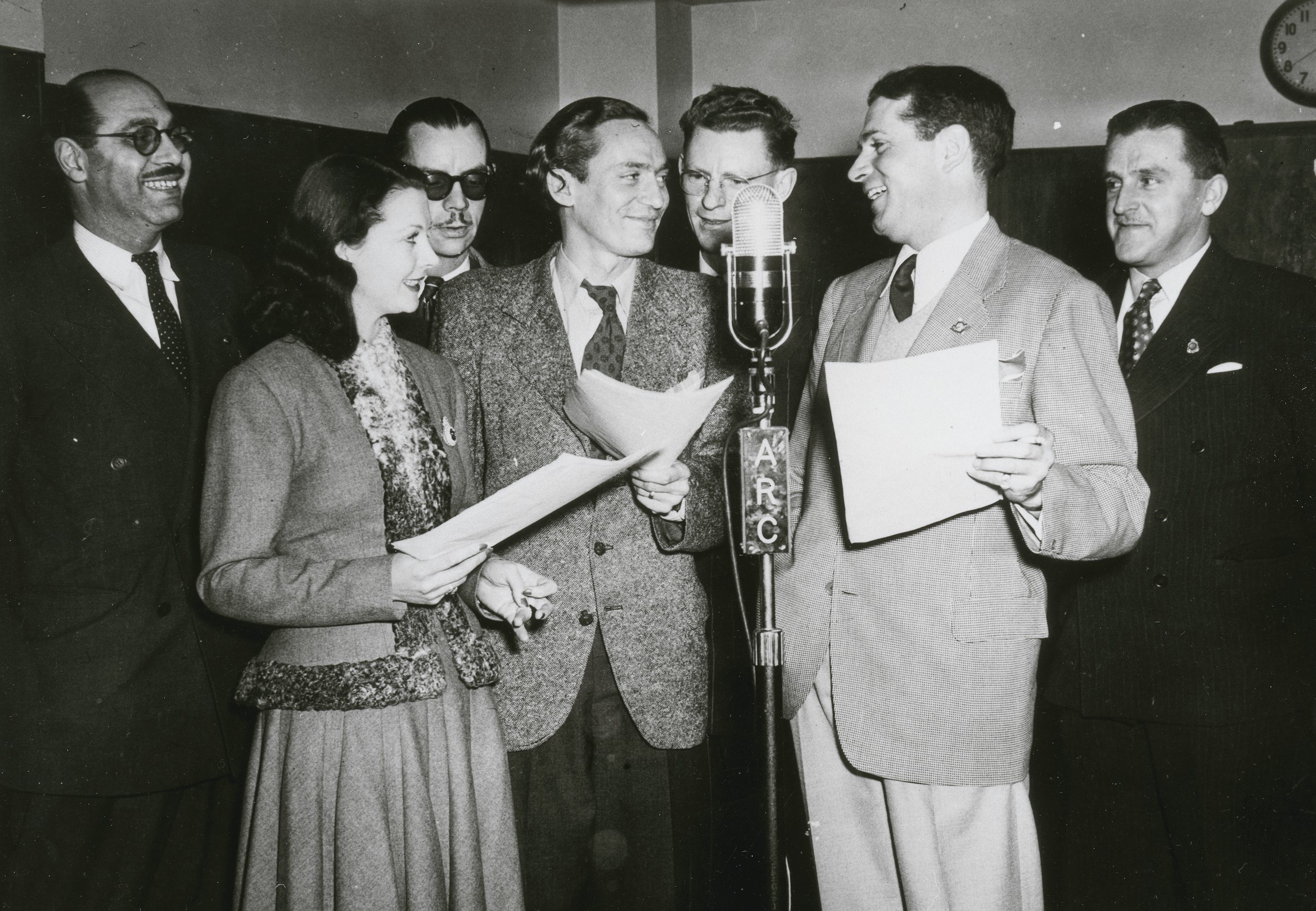

Peter Finch
English-born Australian actor Peter Finch (28 September 1916–14 January 1977) was born 100 years ago today. Finch was the first Australian to win an Academy Award for acting. He played the messianic TV anchorman Howard Beale in Network (Sidney Lumet, USA, 1976) who tells viewers to go to their windows and shout, 'I’m mad as hell and I’m not going to take this anymore!’.
While Finch is mostly remembered for his many film roles, few realise that his early career included radio drama. His international career began after he was discovered by Laurence Olivier and Vivien Leigh during their celebrated tour of Australia in 1948.
The NFSA collection includes recordings of some of Finch’s early radio work such as the following extracts from the series Mutiny on the Bounty (1938), Crossroads of Life (1947) and Random House, which was the last series he appeared in before he left for London in late 1948.
Finch got his start in radio in the late 1930s when actress Enid Lorimer brought him to the attention of James Raglan of the Broadcasting Service Association (BSA) Players. The BSA Players were set up by the powerful Denison family who had a controlling interest in radio station 2GB and were part of a new station policy to produce Australian drama with Australian subjects, using Australian actors.
Finch also came to the notice of Australian Broadcasting Commission radio drama producer Lawrence H Cecil who became his coach and mentor throughout 1939 and 1940 while he was under contract with the ABC performing in radio plays. He became well-known for his warm, appealing voice which, according to one commentator, ‘dripped sex appeal’. He won Macquarie awards for best radio actor in 1946 and 1947, worked as a producer and as a compere and also wrote scripts based on his own fiction.
Radio bounty
The Australian radio series, Mutiny on the Bounty (also known as Mutiny of the Bounty), was written by Anthony Scott Veitch and featured members of the BSA Players. Episode One features a lot of exposition but gives Finch, playing James Morrison the boatswain’s mate, the opportunity to 'talk like a gentleman’. When this recording was made Finch was 22 and it is difficult to recognise the distinctive warm tones of his voice which are evident in later recordings. In comparison with the other unidentified cast member his performance appears to be understated, but his tone still conveys his excitement in joining the crew for a voyage to Tahiti.
Lynn Foster wrote and produced Crossroads of Life and had become friends with Finch when they were both with the BSA Players. She convinced him that an ongoing role in Crossroads of Life would offer a regular income and enable him and his wife Tamara to travel overseas. In this scene, Finch plays Stephen Crane opposite Thelma Scott as his lover, Julie Halsted. Stephen passionately argues that Julie has the right to happiness in choosing him over her ailing ex-prisoner of war husband.
Art imitates life in one of the final episodes of a series about the Random family. In this scene Finch (playing the son, Michael) hesitantly breaks the news to his parents, played by Nancye Stewart and Kevin Gunn, that he has been summoned to England by Sir Staunton Croft with his passage booked to London on the Archimedes. This plot device reflects or foretells Finch’s own journey to England to further his acting career. In his characteristic naturalistic style, the warmth of Finch’s voice brings to life the delicacy of family communication in regard to a life-changing decision.
A fateful encounter

Peter Finch with the Oliviers 1948. NFSA title: 633614
From left to right, Sydney John Kay, Vivien Leigh, Kimball S. Sant (behind Leigh), Peter Finch, Colin Scrimgeour (behind Finch), Laurence Olivier and G. J. Aitken.
During the Old Vic Theatre tour of Australia in 1948, Vivien Leigh and Sir Laurence Olivier attended a performance by the Mercury Mobile Players at a glass factory in Sydney.
This troupe, which was founded by Finch and Sydney John Kay and named after Orson Welles’s company of the same name, had difficulty in accessing theatres and decided to take the theatre to the people in their workplaces. Olivier spoke glowingly to the press about Finch’s talent and encouraged Finch to look him up if he ever made it to London.
Soon afterwards, Finch and his wife – the Russian ballerina Tamara Tchinarova – sailed to England on board the Esperance Bay, arriving in London in November 1948. After an initial period of waiting for work, Finch took the London theatre scene by storm with a series of outstanding performances. He was soon engaged by the BBC for radio and television work and then made the transition to film roles. From the mid-1950s onwards he predominantly worked in film.
Acknowledgements
Lane, Richard and National Film and Sound Archive of Australia 1994, The Golden Age of Australian Radio Drama 1923-1960: A History Through Biography, Melbourne University Press, Carlton South, Vic.
'Success Story’ 1954, The Sun-Herald 8 August, p 21 (viewed 23 September 2016).
With additional thanks to Craig Nugent.
The National Film and Sound Archive of Australia acknowledges Australia’s Aboriginal and Torres Strait Islander peoples as the Traditional Custodians of the land on which we work and live and gives respect to their Elders both past and present.